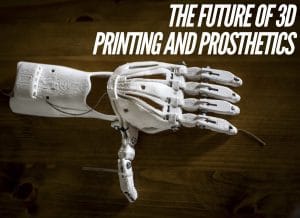Lt. Governor Jon Husted is working to change a state law from 2001 that regulates prosthetic manufacturing in Ohio. Under the current law, prosthetics manufacturers are required to obtain a state prosthetics manufacturing license, a process that can take applicants up to six years to complete.
Husted is dedicated to increasing government efficiency through Innovate Ohio, a new agency created under the DeWine administration which utilizes technology to foster economic development and improve government services.
The issue was brought to the Lt. Governor’s attention by Aaron Westbrock, an Ohio State University Student who uses 3D printers and recycled plastics to make prosthetic limbs for children at a fraction of the cost of traditional prosthetics. “Aaron is providing an innovative and creative solution to a problem that he and many other people face, and I don’t want outdated laws to stand in his or anyone else’s way” said Husted.
Westbrock, a Columbus native, is the founder and CEO of the local non-profit Form 5 Prosthetics, an organization dedicated to creating sustainable and affordable prosthetics. Westbrock feels he is often better equipped than large manufacturers to meet a child’s specific needs by making more specialized products. “The laws that we need should foster innovation and make prosthetics more accessible. The law in its current form could prevent more work to provide better prosthetics,” Westbrock said.
Missy Anthony, executive director of the state board that licenses prosthetics manufacturers, is looking into the issue. According to Anthony, “3D printing of prosthetics is a cutting edge technology that was not contemplated when Ohio’s prosthetics statute was written. The Ohio Occupational Therapy, Physical Therapy, and Athletic Trainers Board looks forward to working with Lt. Governor Husted on this issue in an effort to balance public protection and innovative practice.”
Ohio has no choice but to embrace technological developments in order to succeed in a modern economy. Lt. Governor Husted has made it clear that he is dedicated to cutting red-tape when in inhibits efficiency and healthy economic competition. As our industries continue to adapt, it is important that leaders in government, business, and the non-profit world push for innovative solutions to address the problems facing Ohioans.

